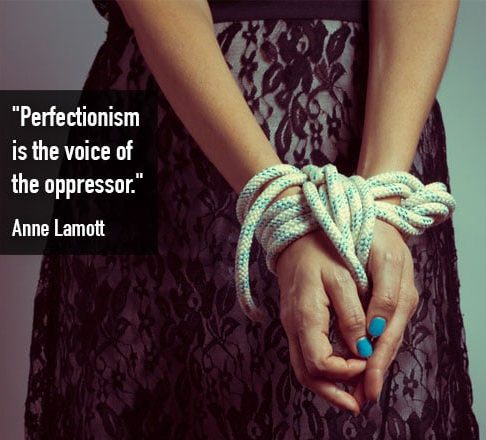3 Ways to Counteract Self-Sabotage
Years ago I surveyed my mailing list and got back about 500 responses. My main question I posed was this: “What is your most pressing problem when it comes to your writing?” Hands down, the most prevalent response was the difficulty in finishing a project.
There are a lot of reasons we don’t get the writing done, and often fear is at the center. Fears can be real, valid, and substantial. They can also be illusive—ones we fabricate or blow out of proportion because we aren’t ready or willing to deal with the fears.
I like to face my fear by asking myself: “What’s the worst that could happen?” When it comes to finishing a book and considering publishing it or sending queries to agents, writers often fear rejection. What if every agent rejects your manuscript? What if you self-publish and readers hate your book and you get all one-star reviews? What if no one buys your book?
These are valid fears. But they’re not life-threatening. If these things happen, we aren’t going to die. Our career isn’t down for the count.
It’s always easier to give in to the fear and avoid risk. And one of the ways we do this is via self-sabotaging.
The Long-Term Effects
Some studies have shown that self-sabotage leads to cycles of negative motivation. Meaning, the more you engage in self-sabotage, the less motivated you are to get something done. It’s a self-perpetuating cycle that will prevent you from ever being truly productive.
Each time you fail, you prove to yourself that you just can’t accomplish your task. If you sit down to write and tell yourself it’s going to suck or you’ll never get the scene written, you’ll fulfill your own prophecy. And the next time you sit down, all you have to do is pull out the proof from previous attempts to discourage you from trying again. And when you do finally push through to write, the results are pathetic, due to the pressure you are heaping on your head.
Self-Sabotage Cycles
Many of us fall into the trap of self-sabotage cycles, which pushes us to underperform. We know how tenacious habits are and how difficult they are to change. In order to break free from self-sabotage cycles, we will have to be determined and stalwart, like the heroes in our novels.
Simply stated, self-sabotage is any behavior, mind-set, emotion, or action that holds you back from getting or doing what you want, and it’s usually subconscious. Because of our past, we opt for these habits because they act as a safety mechanism to keep us from suffering disappointment or depression. Our brains are doing what they are supposed to: protecting us from harm and keeping us comfortable.
If every time we jumped up out of our bunk bed we hit our head on a low ceiling, our brain would start warning us before we threw off the covers each morning. We would develop a habit rather quickly of pausing and carefully extricating ourselves from the bed instead of leaping upward. Our brain has our best interests in mind (does that sound as weird to you as it does to me?).
But, ultimately, our brain is not doing us any favors.
We find ourselves at times intentionally impeding our own progress when we’re trying to get writing done. This isn’t just about those moments when we stop writing to sweep the floor. There’s a difference between hacking through distractions or inner resistance to writing and actually self-sabotaging—which is more entrenched and virulent.
Self-sabotage has deep roots in feelings of low self-esteem, self-worth, and self-confidence. I would venture to say we all struggle with these attitudes at various times and on various levels. What makes them so challenging to thwart is they have developed over years of life, and every time we’ve failed and been ridiculed or someone has made us feel “less than,” those negative self-feelings hardened just a little more.
Now we have a concrete wall in front of us that we have to sledge-hammer through, and it’s not an easy task.
Types of Self-Sabotage
We each have concocted a unique cocktail of self-sabotage, which might be made up of some of the following ingredients:
- Fear of taking risks
- Fear of making mistakes
- Fear of failing
- Inability to say no
- Inability to make firm plans
- Inability to listen well
- Inability to consider the consequences of our actions
- Inability to think clearly when trying to make a decision
- Inability to admit mistakes
- Tendency to complain about others or blame them
- Tendency to worry excessively
- Tendency to procrastinate
- Tendency to have unrealistic expectations
- Tendency to judge others harshly
- Expecting ourselves to be perfect
- Excessive time spent daydreaming or engaged in wishful thinking
- Tendency to compare ourselves with others
These components that contribute to self-sabotage manifest in thoughts like “I can’t do this” or “This will never work.”
Here are three helpful ways to interrupt the cycle of self-sabotage:
- Identify the bad behavior. The first step in beating self-sabotage is catching ourselves doing it. Stop and sit down, pick up pen and paper, and begin listing the inner dialogue—those statements we make and those tendencies we have that are preventing us from being productive.
Try to pinpoint specific triggers that launch these behaviors. They could be people, objects, situations, places, or even times of day. Sometimes we can remove the triggers. For instance, if we tend to self-sabotage when we sit down to write at the kitchen table—because we give in to distractions as excuses not to write—we can pack up our laptop and head to the public library. Other times, we can’t remove the triggers, so in those instances we need to understand how they’re functioning.
Ask yourself questions:
- What am I believing about this situation that is sabotaging me?
- What is this causing me to believe about myself and my abilities?
- How did this belief trigger my self-sabotage pattern?
- How is this belief ridiculous and self-destructive?
- What is a healthier, kinder perspective I could adopt?
- Create Healthy Alternate Behavior. Hey, we’re writers—we should be able to come up with some creative alternatives to bad behavior. In order to eliminate the bad, we need to replace it with the good. With behavior that’s helpful and encouraging. We can’t always avoid people, situations, or objects that cause us to react in detrimental ways. So we need to list things that answer these questions:
- What’s a better and more appropriate way I could respond to this trigger that would help me break out of this self-sabotage cycle?
- How will I benefit from responding this way instead of the former way?
- What is the key advantage for changing this behavior?
- Practice Makes Better. Or, better said: practice turns into habit. Every time your triggers fire and you begin to self-sabotage, stop and run through your challenging questions, reminding yourself of why and how you want to change the reaction to that trigger. The more you stop yourself and replace the old attitude with the new, the sooner that new behavior will be a habit. This goes beyond the self-talk we discussed in the early posts on this topic—because habits of self-sabotage are so deeply ingrained.
Sure, this will take work and time, but every little victory is a step forward and away from the debilitating habits of self-sabotage.
Take time each day to reflect on your progress, to learn from your mistakes. Look at the big goal of a lifestyle and attitude change that will stretch over the course of your life. It takes courage to expand our perspective, to get out of our small ruts and limited thinking. But it’s worth it.
If possible, enlist others to help you. It’s no fun at all to have someone point out to you those moments you slip into self-sabotage, but if you can keep from getting defensive, this can help so much. We often can’t spot our own destructive attitudes and behavior. Ask your family members or friends to speak up in kindness and love, not criticism. Or you could come up with a signal of some sort to imply “you are doing it again.” Maybe make a goofy face or give a gesture like pulling your hair out. If it can make you laugh instead of get angry, that’s going to motivate you more to change the bad behavior.
I like the idea of rewarding yourself when you spot and stop a trigger. If you make this “seek and destroy” activity a fun and challenging one, it may make it easier to replace and turn the bad into good habits. Chocolate, anyone?
Do you tend to self-sabotage? What helps you break through it? Have you tried any of these methods? Share in the comments.
Feature Photo by Jakayla Toney on Unsplash












Powerful post! So very true of writers and timely.
So true. Self-doubt leads to self-sabotage which becomes a deadly cycle, killing creativity. Love your action steps and would add one more: keep copies of your positive reviews and encouragements. When self-doubt threatens, read them out loud.
This is a great post. I appreciate the helpful tips, thank you!
I have been trying, off and on, to write a memoir for over forty years. I was in my twenties when I first attempted to write this story, I’m now in my sixties. Looking back, I realize that I wasn’t anywhere close to being emotionally ready to write about this, when I first made the attempt. Today, thanks to several years of healing therapy, I am ready. But after a lifetime of trying and failing, countless times, to get this story written, I had developed the mindset that I could not do it. Failure had become a habit I couldn’t seem to break.
Then I read a book called Mini Habits by Stephen Guise. I applied his scientific and super easy principals to my daily routine, and as a result — drumroll, please — I am close to finishing the first draft! I could never get beyond the first couple of chapters before, in all my years of trying. But now, I have written dozens of chapters, so many that I will have a lot to cut out, when I do my revisions. Yaaaaaay!!!
Speaking of revisions, another way that I tend to self-sabotage is with perfectionism. I’m not quite sure how I will handle this, beyond prayer and acceptance of the fact that it’s okay not to be perfect, because no one on this earth is perfect. There will come a time, hopefully in the not too distant future, where I will say “Okay, this is good enough.” Then I will take a deep breath, say another prayer, and PUBLISH!
An excellent article. The steps to undoing this toxic cycle are spot on. There are many artists and writers who will relate to this background ‘voice’ which usually originates in negative childhood feedback. I know – much of my time as an art teacher of both children and adults is the ‘I’m not good enough’ syndrome when they have scarcely picked up a pencil or a a brush in their lives/since childhood. My ‘have-a-go-and-the-next-piece-will-be-better-than-this-one’ seems to do the trick.
Definitely important, and something you don’t just think of once, but have to work on every day. Thanks.
I think I ticked all the boxes in self-destruction. I wrote and self published a fantasy novel with no expectations. I have two novels on the go, have been stuck fast for almost a year, full of self doubt coupled with a mindset that talks its way into doing other so called important things every time I go to write. This is best self doubt advice I have read so far and has energised me to work with your words—-Thank you
J.S.McGowan
So glad to hear that this has helped you!